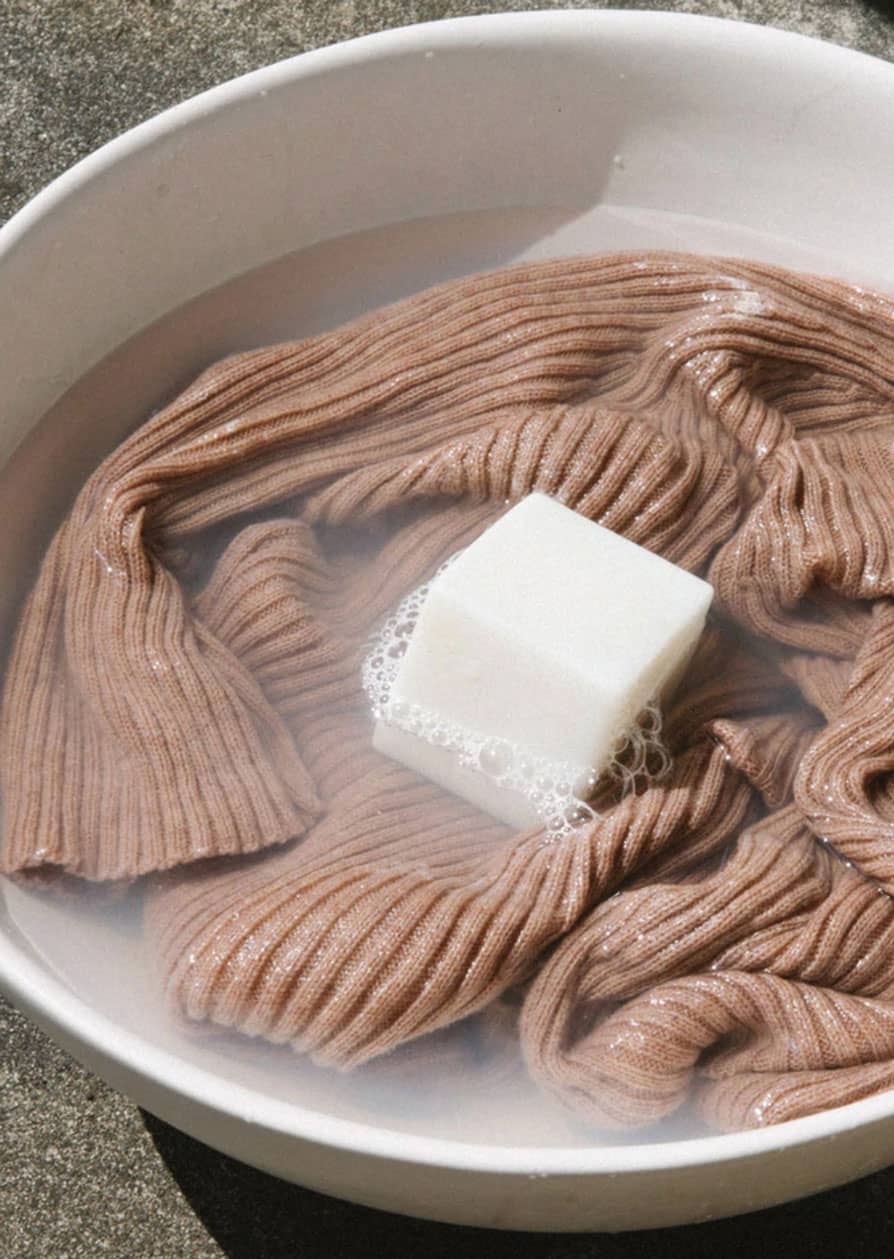-
-
-
-
-
Currency
living
Keep It Clean: 5 Swaps To Make Doing Laundry Loads Lighter On The Environment


Domestic duties: we all have them; we all complete them. Some feel like the bane of our existence. Others can be strangely cathartic.
We can’t speak for your emotional response to household chores, but, for us, laundry fits into the latter. When well managed (i.e. not piling up in an extreme or menacing way), laundry day can be strangely soothing, even somewhat stress relieving.
Now that you know how we really feel about doing laundry, allow us to share the ways we make this task better for the planet. For this week’s Swaps instalment, we’re ditching plastic pegs and toxic liquid formulations in favour of a cleaner experience.
Swap: plastic pegs for stainless steel pegs
Swap: plastic pegs for stainless steel pegs
Plastic pegs are faulty by design. Even if you’ve treated yourself to the most expensive packet in the aisle, they’re not built to last and will eventually snap apart in your hands and break. And as a product that can’t be recycled, fragments of broken pegs are left to loiter in landfill for a very long time.
The simple solution is to switch to steel. Unlike plastic pegs, a high-quality stainless steel product promises a lifetime of use. The Dirt Company even introduces its product, made from 316 marine-grade stainless steel, as “the last set of pegs you’ll ever buy”. A great plastic-free option that won’t degrade over time when exposed to the elements.
Swap: single-use plastic laundry detergent bottles for refillable laundry detergent
Plastic laundry detergent bottles might give the vibe of being recyclable (and by virtue, not so bad for the environment), but we know recycling alone isn’t a reliable waste solution. We need brands to design away from plastic packaging altogether – which is why we love refillable alternatives.
According to The Dirt Company, if only 0.5 per cent of Australian households switched to Dirt detergent (a concentrated formula of cruelty-free, biodegradable ingredients sold in refillable packaging), it would prevent 50 tonnes of plastic from being manufactured each year. If that alone doesn’t convince you, the brand’s detergent cleans clothes exceptionally well, the refill packs (made from 30 per cent post-industrial recycled waste) can be returned for reuse and the glass dispenser bottle makes for a stylish laundry addition.
Swap: spray bottle stain remover for a stain remover bar
Stains are an unavoidable part of life. Blenders explode, people are clumsy and coffee doesn’t always stay in the cup. But you don’t have to rely on plastic spray bottle stain remover to save you from these messy moments – stain-removing bars exist (and create much less waste).
Go for Zero’s stick is waste- and toxin-free, using D-limonene (a natural citrus by-product) to dissolve fabric stains. Ethique’s Flash! bar is made with 100 per cent biodegradable ingredients and works as both a stain remover and an all-round laundry bar (so it’s also great for handwashing delicates or to take away on trips). And while we love the idea of forgoing packaging altogether, we do have to shout out The Dirt Company’s stain remover, sold in a refillable spray bottle that is just as chic as its detergent dispenser.

Documented By: Sphaera
Swap: bagless washing for a washing bag
Synthetic textiles (most of which are made from petroleum-based plastic) currently make up about 60 per cent of our clothes. It’s easy to forget that, every time we wash our clothes, microfibres from these synthetics make their way into rivers, lakes and oceans. This creates microplastic pollution, an issue that harms aquatic organisms and humans who inadvertently consume the fragments through the food chain.
GUPPYFRIEND’s washing bag is a good solution for this. The bag reduces fibre shedding and filters synthetic microfibres so they can’t make their way out of the machine and into waterways. And, hopefully, getting a visual on microplastic pollution will inspire you to rethink some of the materials that are ending up in your wardrobe too.
Swap: long, hot wash cycles for short, cold wash cycles
Once you’ve banished single-use plastic packaging and harmful chemicals from your laundry routine, keep the low-impact party going by washing your clothes on a cold cycle when possible. By switching to a cold water wash even once per week, you can reduce your household’s greenhouse gas emissions by over 32 kilograms annually.
As for switching to a shorter wash, despite misconceptions about effectiveness, a quick cycle will still clean your towels and clothes, but it will consume far less water and electricity than hot, long washes.

ABOUT US
CUSTOMER CARE
EDITORIAL & RIISE PRODUCTIONS
© 2021 RIISE, All Rights Reservedjoin riise's mailing list for 10% off your first order.Availability













